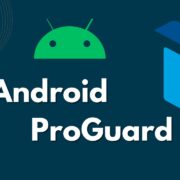
Children learn the meaning of most words through everyday experiences with oral and written language. Vocabulary affects children’s ability to understand and use words in a language by listening, speaking, reading and writing. We know that young children acquire vocabulary by listening to and reading other people’s speech and use words when talking to others. When children develop language, they use the sounds they already know to learn new words. You acquire some vocabulary knowledge for new words by learning explanations with familiar old words.
When new words are modelled, students are more likely to use them in their spoken vocabulary. Using new vocabulary in the context of a sentence helps students understand and recognize it when they hear it for the first time. Using words in sentences causes your child to use words in spoken and written sentences, which helps them understand the meaning and context of the words. You can also introduce new Christmas words for kids, which are available at Osmo. These words help them broaden their vocabulary and learn new words. Children use language to understand them, so they encourage them to include them in their written vocabulary when they talk about new words or define them in their own words. Below given are a few points that explain the importance of learning new words for children.
Significance of Learning New Words
Homonyms (words with multiple meanings) are an effective way to teach vocabulary by showing how a new word relates to other words a student already knows. If your child gets points every week, they will learn new words, even if they don’t know how to use them. If they get spelling every week at school, have them write a sentence containing a word and encourage your child to search it up in a dictionary if they are unsure what it means. When looking at words with multiple meanings, consider the consonants and vowels (consonants) of words children encounter when reading words such as jam and ham. These consonants have accessible meanings, whether you think of the sweet, sticky stuff on toast, the jam you eat with eggs in the morning or ham. In addition to these words, you can also introduce the little ones to Osmo’s Halloween words. Here are a few points that briefly explain the significance of learning new words.
- Early Learning: Kids usually learn more than 90-95% of the vocabulary during their primary level of education. This helps them comprehend what others are saying and what they are reading. Children with a more extensive vocabulary can understand more of their context, making it easier to understand and learn the material. With a rich vocabulary, students must learn as many words as possible and remember what they are learning and remembering.
- Unique Ways of Learning: Several techniques help children memorize words, and teachers assist them with the learning process. One of the techniques they use to teach vocabulary is repetition. We have learned that a technique can help teachers when the little ones face challenges with vocabulary or pronunciation of certain words.
- A Good Academic Performance: To succeed at school, children need to build a robust vocabulary. For example, a study shows that exposure to challenging vocabulary forms and teacher interviews in preschool predicts how well a child masters vocabulary and comprehension skills in fourth grade. Children who engage in meaningful language experiences build up a vocabulary bank that helps them decipher words and understand texts.
- Improves their Vocabulary: Kids’ vocabulary implies the words they comprehend when reading, using, listening, writing and speaking – is vital to academic success. Children need to use a formal tone when writing, not the language of conversation, and they need a rich vocabulary that takes upon words we don’t use when speaking.
- Enhances their Concentration Levels: A focused teaching method helps the early learners learn new words and paves the way to understand more as they read. When we read to children without pause or authentic discussion, they are exposed to many new and advanced vocabulary in engaging and meaningful contexts. A broad and rich vocabulary of words that we know how to recognize and use allows children to understand and enjoy what they read and learn about the world around them and express themselves and their thoughts to people who listen.
To introduce kids to unique words and fun educational games, visit Osmo’s website.












